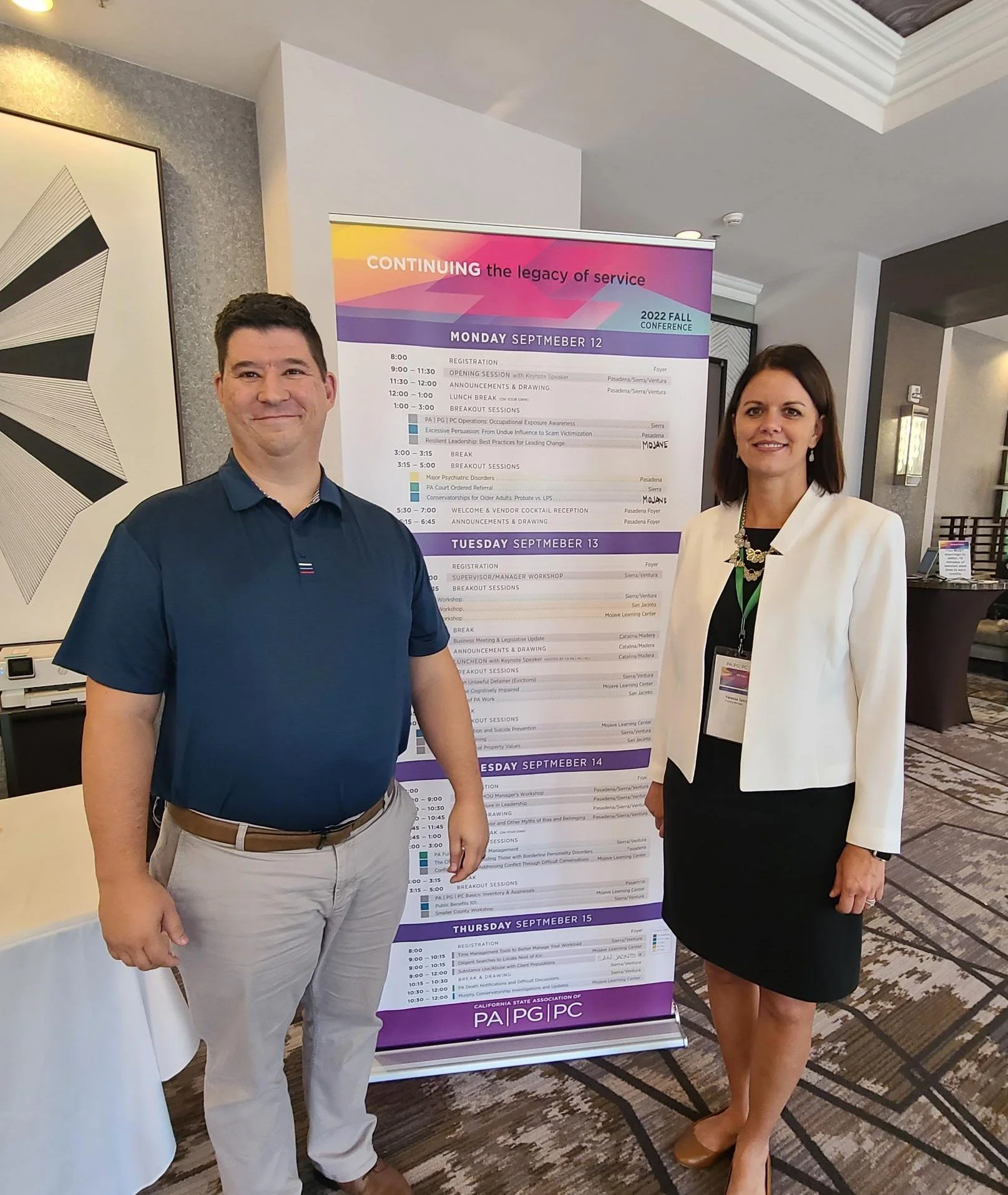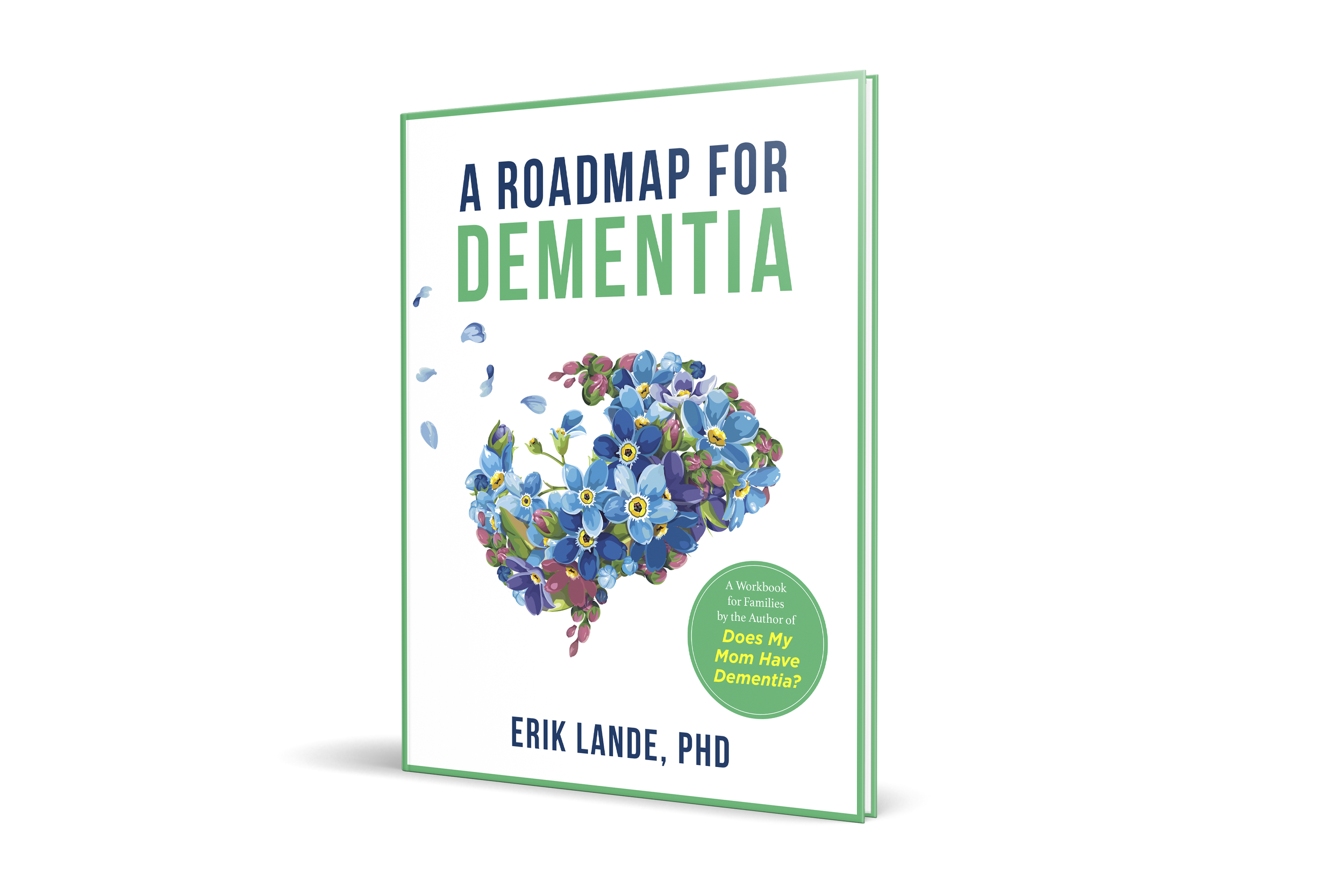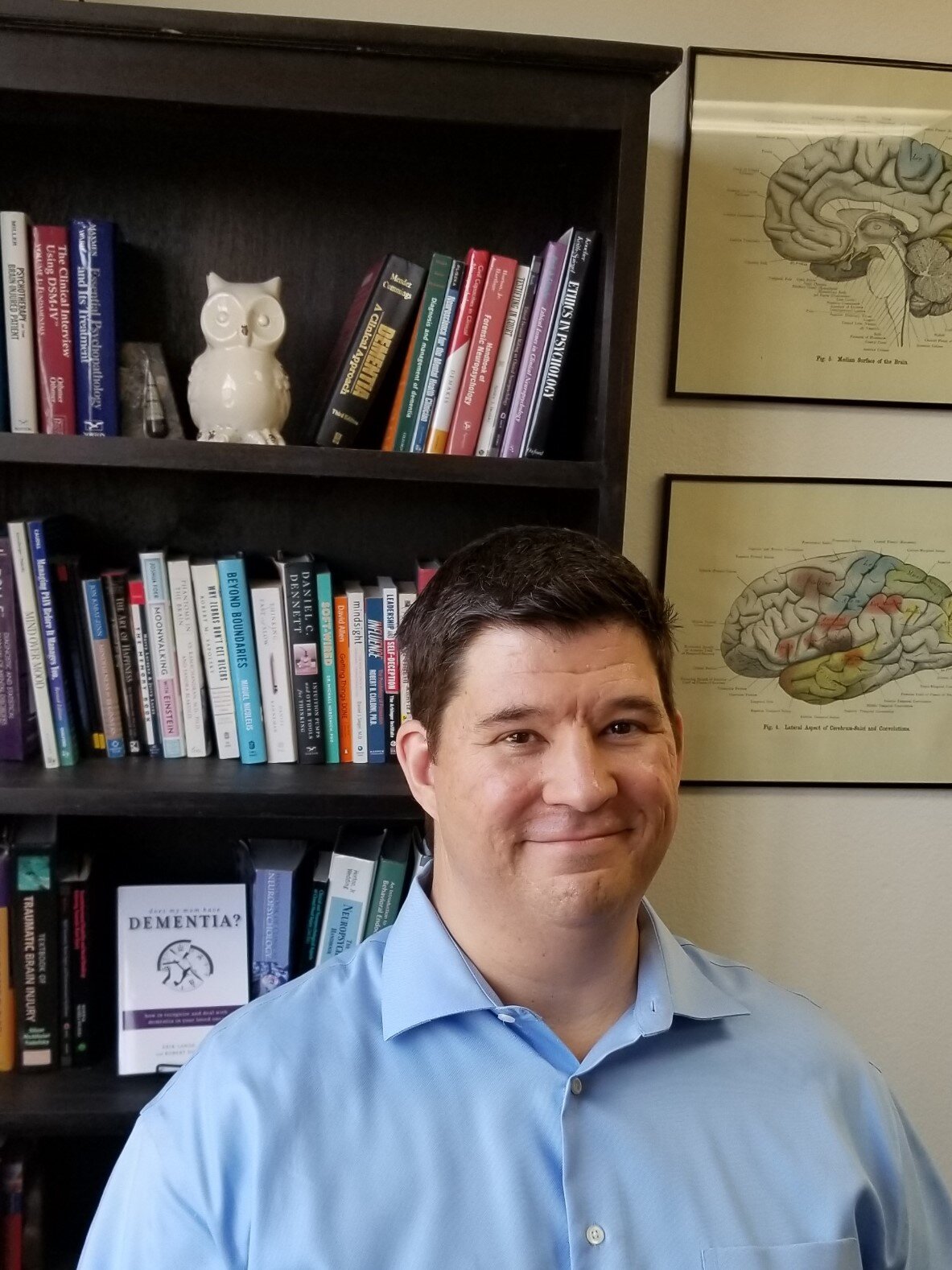Thank you to the California State Assoc of Public Administrators, Public Guardians and Public Conservators for having me speak at your convention this week!
I really had the opportunity to learn a lot about the work of the Public Guardian’s office and how best to support them over these last few days here in Palm Springs. I also had the opportunity to hear experts in their field discuss topics such as suicide prevention and crisis intervention, as presented by Sergeant Kevin Briggs, known as the guardian of the Golden Gate for his work preventing suicides while in the California Highway Patrol, and Dr. LaVonna Lewis from USC, who helped us explore awareness of our own bias and its effects on our interactions with others.
My presentations at the conference included
Excessive Persuasion: From Undue Influence to Scam Victimization
and
Interviewing the Cognitively Impaired
Know the Risk Factors That Make Older Adults Susceptible to Financial Abuse?
It can be difficult to know when something is wrong. Much financial abuse occurs in secret. In many cases the bad actors themselves train their victims not to tell anyone about what is going on. There are signs that you can watch for and things you can do to protect your loved ones though. The issues related to older adults falling victim to scams or undue influence are so significant that when I created the second edition of my book, I added a whole chapter on the topic.
Have You Heard of Undue Influence?
Another type of financial exploitation to mention is somewhat harder to detect. It is the concept of undue influence, which people with dementia can be particularly vulnerable to due to their cognitive impairment. Undue influence is often used to manipulate an older adult into changing estate plans or giving large gifts to the influencer, even when it is not in the older adult’s best interest. Whereas scams use advertising techniques, undue influence uses the development of a strong relationship. Essentially the bad actor develops a special and trusted relationship with the older adult. This is sometimes seen with caregivers, where a caregiver who was hired to care for an older adult with dementia develops a strong bond with the person and then purposely starts to manipulate the older adult with dementia. Often the issue does not become obvious until some financial cost has occurred, or family or friends begin to recognize the influence that the bad actor has developed.
Besides cognitive impairment, risk factors for undue influence include dependence and isolation. The victim may become dependent on the bad actor for things like food, transportation, and even financial management. Isolation contributes as the victim feels that they have no one else to turn to and so instead they focus on the bad actor. The bad actor will themselves usually encourage isolation and dependency.
Resources to Report Scams and Fraud
National Elder Fraud Hotline
Provides case managers for support and resources
1-833-FRAUD-11 (1-833-372-8311)
www.justice.gov/stopelderfraud
Federal Trade Commission
Helps government identify victims and track these crimes
www.FTC.gov
FBI Internet Crime Complaint Center
Helps government identify victims and track these crimes
www.IC3.gov
Everyone deserves to understand their brain, how it ages, and is it healthy. Our books provide a roadmap to help you determine if you should be concerned and how you can help yourself and your loved ones. This includes learning about the types of dementia, conditions that can be mistaken for dementia, how to interact with doctors, and what treatments and care is out here.
Our new workbook helps to provide worksheets and tools to support you and your loved one with that the stresses that can arise with dementia, be it due to Alzheimer’s disease, vascular disease or Lewy body disease.
In particular, “A Roadmap for Dementia“ provides tools to help:
Create a memory book to support your loved one and assist caregivers
Develop a strategy to understand behaviors seen in dementia
Learn to cope with agitation and psychosis
and for communicating effectively with your loved ones with dementia
Perhaps you are more of a watcher than a reader
We have also created a series of online video classes focused on understanding the brain and dementia, caregiving strategies, how to keep our brains strong, and even a video course on how to make the holidays a little easier for your loved one with dementia.










